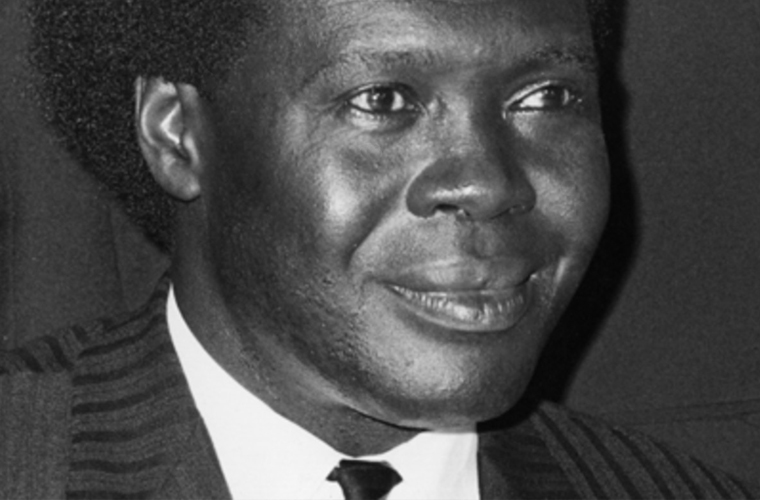Milton Obote, in full Apollo Milton Obote, (born December 28, 1924, Akoroko village, Lango, Uganda—died October 10, 2005, Johannesburg, South Africa), a politician who was prime minister (1962–70) and twice president (1966–71, 1980–85) of Uganda. He led his country to independence in 1962, but his two terms in office (both of which were ended by military coups) were consumed by struggles between Uganda’s northern and southern ethnic groups.
Obote was born the third of nine children in a farming family in north-central Uganda. He first attended Busoga College in Mwiri and then Makerere College in Kampala from 1948 to 1949, but he was expelled from the latter for his political activities before he could graduate. The British colonial government prevented him from accepting scholarships to study in the United States and West Germany, and in 1950 Obote went to Kenya. There, while working as a laborer, clerk, and salesman, he became involved in the independence movement and joined the Kenya African Union.
Obote returned to Uganda in 1957 and became a member of the Uganda National Congress Party. In 1958 he was elected to represent his home district in the Legislative Council, where, despite the fact that he was one of a small number of African delegates, he did not hesitate to criticize the British government. When the National Congress Party split, he formed the Uganda People’s Congress (UPC), which drew its support mainly from the northern Acholi and Lango peoples. The UPC’s main political focus was opposition to the powerful southern kingdom of Buganda under King Mutesa II. Having become prime minister in 1962, Obote accepted a constitution that granted federal status within Uganda to five traditional kingdoms, including Buganda. He was thus able to form a governing coalition made up of his UPC and Buganda’s Kabaka Yekka (“King Alone”) Party. In 1963 Mutesa was elected to the (largely ceremonial) post of president with Obote’s encouragement.
In 1966, however, the conflict between Obote and Buganda reached a head. Obote sent troops led by Idi Amin, an officer from a northern district, to attack Mutesa’s palace, and Mutesa fled to Great Britain. In an effort to solidify his rule, Obote introduced a new constitution that abolished all the kingdoms and other remnants of federalism in the country. The new constitution also established an executive presidency, which Obote assumed while continuing to serve as prime minister. But Obote’s increasing reliance on the military and police to terrorize his political opponents aroused the resentment of southern Ugandans, and it allowed Amin to build a following based on recruits from among his own Kakwa people. Early in 1971, Obote was overthrown in a coup led by Amin.
Obote settled in neighboring Tanzania, where he maintained a small émigré army under the generalship of Tito Okello, an Acholi. This army aided Tanzanian forces in deposing Amin in 1979, and Okello was able to secure Obote’s election to the presidency after Obote’s return from exile in May 1980. As president, Obote solicited foreign aid in an attempt to raise Uganda’s economy from the ruin of the Amin years, but he did nothing to prevent Acholi and Lango soldiers from conducting a campaign of murder and pillage in the south and in Amin’s home district. In 1985 Obote was forced out of office by Okello. He eventually settled in Zambia but continued to play an active role in the UPC until his death in 2005.

